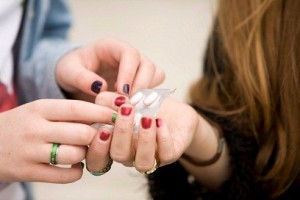 The family unit is crucial to helping reduce teen alcohol and drug abuse. As we’ve discussed on the blog before, the earlier a person is when they start using drugs and alcohol, the more they are at risk for addiction later in life. Teen alcohol and drug abuse can also present other consequences, such as poor grades or injury, that can affect a teen well into adulthood. One of the best ways of dealing with drug and alcohol problems, is to try and prevent them from occurring. According to AddictionBlog.org, here are ten ways that effectively prevent or reduce teen alcohol and drug abuse: Read more →
The family unit is crucial to helping reduce teen alcohol and drug abuse. As we’ve discussed on the blog before, the earlier a person is when they start using drugs and alcohol, the more they are at risk for addiction later in life. Teen alcohol and drug abuse can also present other consequences, such as poor grades or injury, that can affect a teen well into adulthood. One of the best ways of dealing with drug and alcohol problems, is to try and prevent them from occurring. According to AddictionBlog.org, here are ten ways that effectively prevent or reduce teen alcohol and drug abuse: Read more →
 When navigating the waters of teens and alcohol, it can get tricky being a parent. There is a popular misconception that teens are safer and will have healthier attitudes regarding alcohol, if parents let their teens and teens’ friends drink under their roof. This way they can monitor it. However, allowing underage teens to drink at your house can have serious repercussions for both parents and your teens.
When navigating the waters of teens and alcohol, it can get tricky being a parent. There is a popular misconception that teens are safer and will have healthier attitudes regarding alcohol, if parents let their teens and teens’ friends drink under their roof. This way they can monitor it. However, allowing underage teens to drink at your house can have serious repercussions for both parents and your teens.
Here are 4 popular myths about parents, teens and alcohol debunked: Read more →
 A new study recently found that middle and high school students were at a greater risk for drug and alcohol use when they have a sibling deployed in the military. The study also found that multiple deployments by a parent or sibling increased the risk of substance use by 18 percent. Read more →
A new study recently found that middle and high school students were at a greater risk for drug and alcohol use when they have a sibling deployed in the military. The study also found that multiple deployments by a parent or sibling increased the risk of substance use by 18 percent. Read more →
 Prescription drug abuse is reaching epidemic proportions and has been for the past decade. The number of deaths caused by prescription drug overdoses has tripled since 1999. This is more than the number of fatalities from heroin and cocaine combined. The rise in abuse directly correlates with the increase in the number of prescriptions doctors write each year. However, the most frightening statistic is that more than 70 percent of the people who reported abuse of pain medicine, said they got it from family or friends. (www.Bloomberg.com)
Prescription drug abuse is reaching epidemic proportions and has been for the past decade. The number of deaths caused by prescription drug overdoses has tripled since 1999. This is more than the number of fatalities from heroin and cocaine combined. The rise in abuse directly correlates with the increase in the number of prescriptions doctors write each year. However, the most frightening statistic is that more than 70 percent of the people who reported abuse of pain medicine, said they got it from family or friends. (www.Bloomberg.com)
According to TalkAboutRX.org, here are some tips for storing prescription drugs: Read more →
We know that the risk for addiction is high among those who are born genetically predisposed. But reward deficiencies in the brain can also be caused by non-genetic factors. Certain environmental factors can alter or disrupt the normal process of neurotransmission in the reward center of the brain and lead to a higher risk for addiction.
 Prenatal. Trauma that occurs while in the womb can damage the reward center and leave the brain chemistry altered after birth. This trauma could be caused by a mother’s substance abuse problems, malnutrition or a physical injury. Read more →
Prenatal. Trauma that occurs while in the womb can damage the reward center and leave the brain chemistry altered after birth. This trauma could be caused by a mother’s substance abuse problems, malnutrition or a physical injury. Read more →
When talking to teenagers about drugs, should parents share their own drug use stories? Parents might be tempted to offer up stories from their past in hopes of opening the lines of communication with a teenager. Some parents might believe that in discussing past drug use that they are creating an environment of non-secrecy and trust. But such honesty could have its downfall.
 A recent study by the University of Illinois at Urbana-Champaign found that parents volunteering information about their own drug-related habits when talking to teenagers about drugs led to “unintended consequences.” But that’s not to say that you shouldn’t talk to them at all about drugs. Teenagers whose parents talk to them about drugs tend to have an anti-drug attitude. It’s just best for parents to not talk about their own drug use. When parents offered up this sort of information, their teenagers tended have a more relaxed attitude towards drugs, saying “using drugs wasn’t such a big deal.” This might be because teenagers see drug use as less risky if their parents’ lives are on track, or that they were less likely to get in trouble over drug use because their parents did it as well. Read more →
A recent study by the University of Illinois at Urbana-Champaign found that parents volunteering information about their own drug-related habits when talking to teenagers about drugs led to “unintended consequences.” But that’s not to say that you shouldn’t talk to them at all about drugs. Teenagers whose parents talk to them about drugs tend to have an anti-drug attitude. It’s just best for parents to not talk about their own drug use. When parents offered up this sort of information, their teenagers tended have a more relaxed attitude towards drugs, saying “using drugs wasn’t such a big deal.” This might be because teenagers see drug use as less risky if their parents’ lives are on track, or that they were less likely to get in trouble over drug use because their parents did it as well. Read more →


